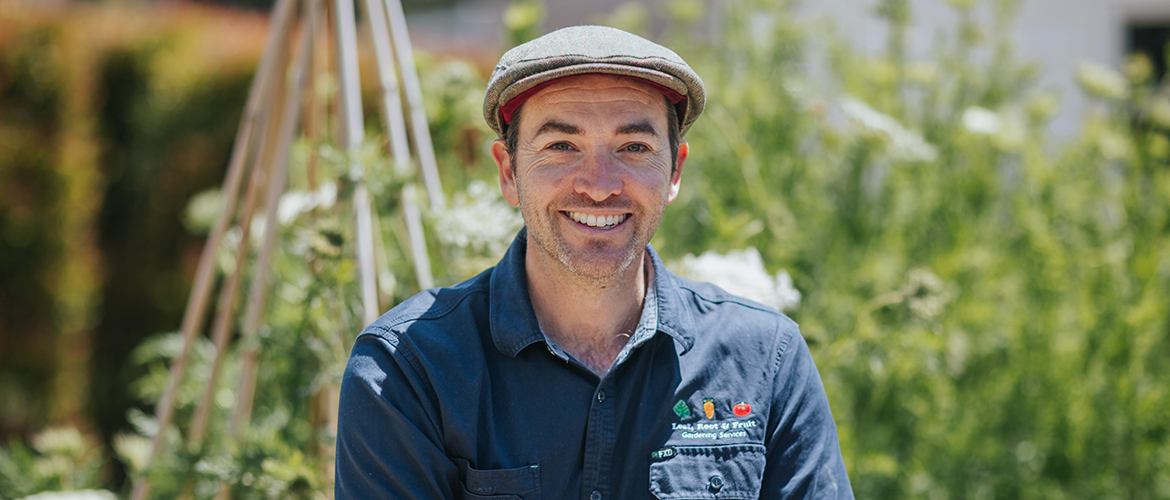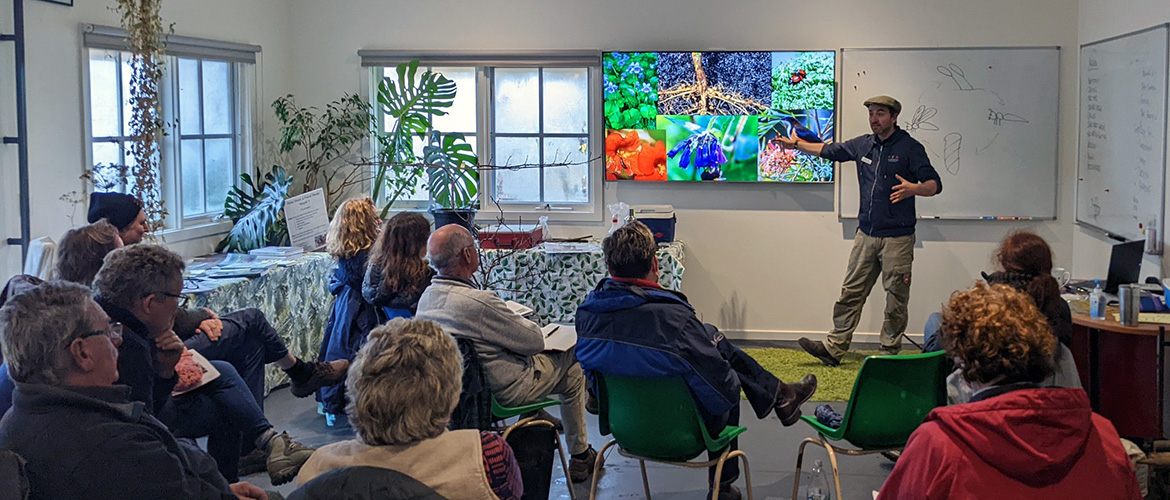Soil Testing & Fertilisers: Growing Nutrient-dense Foods

You are not imagining that veggies were tastier in the ’60s and ’70s … they actually were! You are what you eat, and plants are no different. Discover the importance of soil in growing nutrient-dense food. Enjoy some tomato taste tests and understand how nutrient density is directly correlated to flavour.

Learn some simple ways to increase the nutrient density of your food, and explore options for measuring the nutrient density. We will look at some common mineral deficiencies in plants and how you can correct them.
We’ll discuss modern agriculture and how the veggies produced at an industrial scale are not much better than junk food. You will come away with a renewed appreciation for slow-grown food and how it is tastier and healthier for you.
Topics covered:
- Soil minerals for plant health
- Soil testing
- Clay and sandy soils
- Nutrient density of home-grown food
- Tomato taste tests
The class involves a combination of theory in a classroom setting, demonstrations and hands-on practical activities including:
- taking soil samples for testing
- taste-testing tomatoes
- discovering new favourite tomato varieties to grow at home.
"Material that is inherently difficult to make interesting yet Duncan has the ability to teach it in a new, memorable and fun way. I always learn new things and have fun doing it and come away talking about it."
Alison J.
Workshop participant
By the end of the class you will have a greater understanding of the importance and influence of soil nutrients on plant nutrient density. You will have the skills and practical knowledge to improve your gardening success rate and grow your own tasty, home-grown food.
What to bring
• Enthusiasm for learning
• Water bottle
• Notebook and pen
• Closed toed, practical shoes
• Appropriate clothing, as Kyneton can be cold and wet in autumn, or stinking hot
• Some of your own homegrown tomatoes if you would like to contribute to the taste test and measure their nutrient density.
The Science of Edible Gardening workshop series
This event is one in an eight-part series called the Science of Edible Gardening. You can book in for each workshop individually, but most attendees end up completing the entire series. There is no start or finish to the series – the workshops can be completed in any order and don’t need to be completed consecutively. If life gets busy, or you can’t make a particular session, then you can always come to the same session another year.
The series has been designed to give you an overview of how plants grow and interact with the environment. This understanding makes decision making, planning and garden maintenance straightforward. Observation and understanding of natural ecosystems and phenomena can help you to be a more successful and fulfilled gardener.
“Lots of ah-ha moments. I particularly enjoy the scientific framework that informs the workshops. Digestible and relevant information that is easy to apply in the home garden.”
Lynne F.
Workshop participant
The eight workshop topics are:
🧪 Soil Testing and Fertilisers: Growing Nutrient-dense Foods (each March)
🐛 Garden Pests and How to Control Them: Population Ecology (each April)
🌱 Fruit Tree Grafting, Seed Saving and Pollination: Plant Propagation (each May)
✂ Fruit Tree Pruning and Plant Manipulation (each June)
📅 Garden Planning, Seasonality and Timing (each July)
💩 The Art of Compost: Carbon and Nitrogen Cycles (each August)
🌳 Controlling Weeds: Ecological Succession and Soil (each September)
💧 Garden Irrigation, Rainwater Tanks and Sunlight (each November)
More information about the Science of Edible Gardening workshop series can be found here:
https://www.leafrootfruit.com.au/science-of-edible-gardening-workshop-class/
About the facilitator
I’m Duncan Cocking and I’ve been growing fruit and vegetables since I was four years old. I support others to grow food and reconnect with nature through my business Leaf, Root & Fruit. I'm passionate about reconnecting you to nature via gardening. I write about growing food and living sustainably. I'm a cool-temperate gardener and permaculture educator with 10 years of experience hosting workshops.

During my classes, I focus on the science behind how gardens grow. This gives you an understanding of the built-in resilience of plants. Rather than always finding problems to fix with sprays and other products, you will have a renewed focus on relaxing, observing your garden, and enjoying it. Understanding “why” minimises the amount of work you have to do in your garden.
“Fabulous workshop. You know your material so well and are able to deliver it in easily digestible form. I learned things I didn’t realise I needed to know. I loved having the science explained to counter some of the gardening folklore I’ve accepted without questioning…”
Wendy P.
About the facilities
In 2019 my young family and I moved from Melbourne to make a tree change to Kyneton, a small town 80 km north-west of the city in Victoria, Australia. Since then, I have been busy developing a permaculture-inspired garden ecosystem.
The property has an onsite classroom, with heating supplied by a wood burner. A split system acts as a back-up source of heating and cooling. The light filled, colourful classroom is kitted out with a large screen for running presentations (I promise that these presentations are almost entirely pictures and rarely contain words). The classroom has basic tea and coffee making facilities, ample car parking and a dedicated toilet.

My demonstration orchard contained within a netted enclosure provides opportunities for workshop participants to explore all aspects of growing fruit trees, and contains many examples of espaliered trees. I have designed and planted an extensive berry patch, market garden beds and edible forest gardens. The kitchen garden demonstrates food growing in a more typical backyard setting.
Participants from all over the state attend our workshops. I look forward to hosting you at this exciting event.
Facilitators
Duncan Cocking
Contact us
- Duncan Cocking
- in••••o@lea••••t.com.au
- 0423003764
Location
Classifications
Categories
- General
Age Groups
- All
Levels
- All